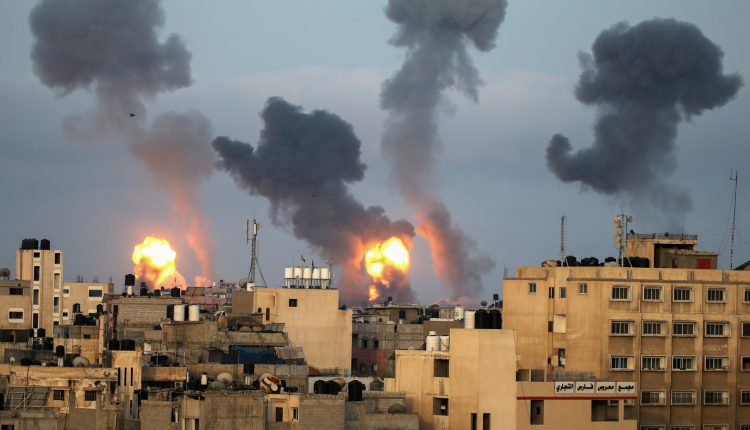Israel Expands Gaza Offensive, Signals Potential Long-Term Presence
By Kardo Roj
DAMASCUS, Syria (North Press) – The Israeli government has approved a significant expansion of its military operations in the Gaza Strip, raising the possibility of full territorial control and a prolonged presence, an Israeli official told Reuters on Monday.
The move follows a decision by Israel’s security cabinet, chaired by Prime Minister Benjamin Netanyahu, to authorize a broader assault on Hamas, the Palestinian faction that governs Gaza. The escalation marks a new phase in a months-long campaign that has seen repeated cycles of violence since the collapse of a temporary ceasefire earlier this year.
According to the official, the newly approved strategy may involve Israeli forces taking control of the entire Gaza Strip. While precise operational details remain undisclosed, the official said the cabinet had endorsed plans that also included a new framework for distributing humanitarian aid, though no supplies have yet been allowed to enter under this plan.
The announcement came a day after Israel’s Chief of Staff Eyal Zamir confirmed that the Israel Defense Forces (IDF) had issued orders to mobilize tens of thousands of reservists to reinforce military units deployed around Gaza.
“The upcoming phase requires a robust and sustained ground presence,” Zamir was quoted as saying during a press briefing. “We are committed to dismantling Hamas’s military infrastructure and ensuring long-term security.”
Israel resumed ground operations in Gaza in March, following the collapse of a U.S.-brokered ceasefire that had temporarily paused hostilities for nearly two months. The ceasefire, which included terms for humanitarian access and prisoner exchanges, fell apart amid renewed rocket fire and disputes over political conditions.
Since then, clashes have intensified, with Israeli air and ground forces targeting what they describe as Hamas command centers, tunnel networks, and weapons caches. Palestinian sources report significant civilian casualties and widespread damage to residential areas, schools, and medical facilities.
The Israeli government has repeatedly stated that its operations aim to eliminate threats posed by Hamas and other militant groups operating within the enclave. Critics, however, argue that the scale of the assault has led to a deepening humanitarian crisis in one of the world’s most densely populated regions.
While Israel has justified the offensive on security grounds, the expanded operation is expected to draw further scrutiny from international actors, many of whom have expressed concern over civilian harm and the long-term implications of a potential Israeli reoccupation of Gaza.
Human rights organizations, including Amnesty International and Human Rights Watch, have urged all parties to respect international humanitarian law and facilitate immediate aid access. The United Nations has repeatedly warned that continued conflict could destabilize the broader region.
Governments across the Middle East have condemned the escalation, with calls for renewed diplomacy and de-escalation. Egypt and Qatar, key mediators in previous truce efforts, have yet to comment formally on Israel’s latest announcement, but regional analysts expect backchannel efforts to resume.

